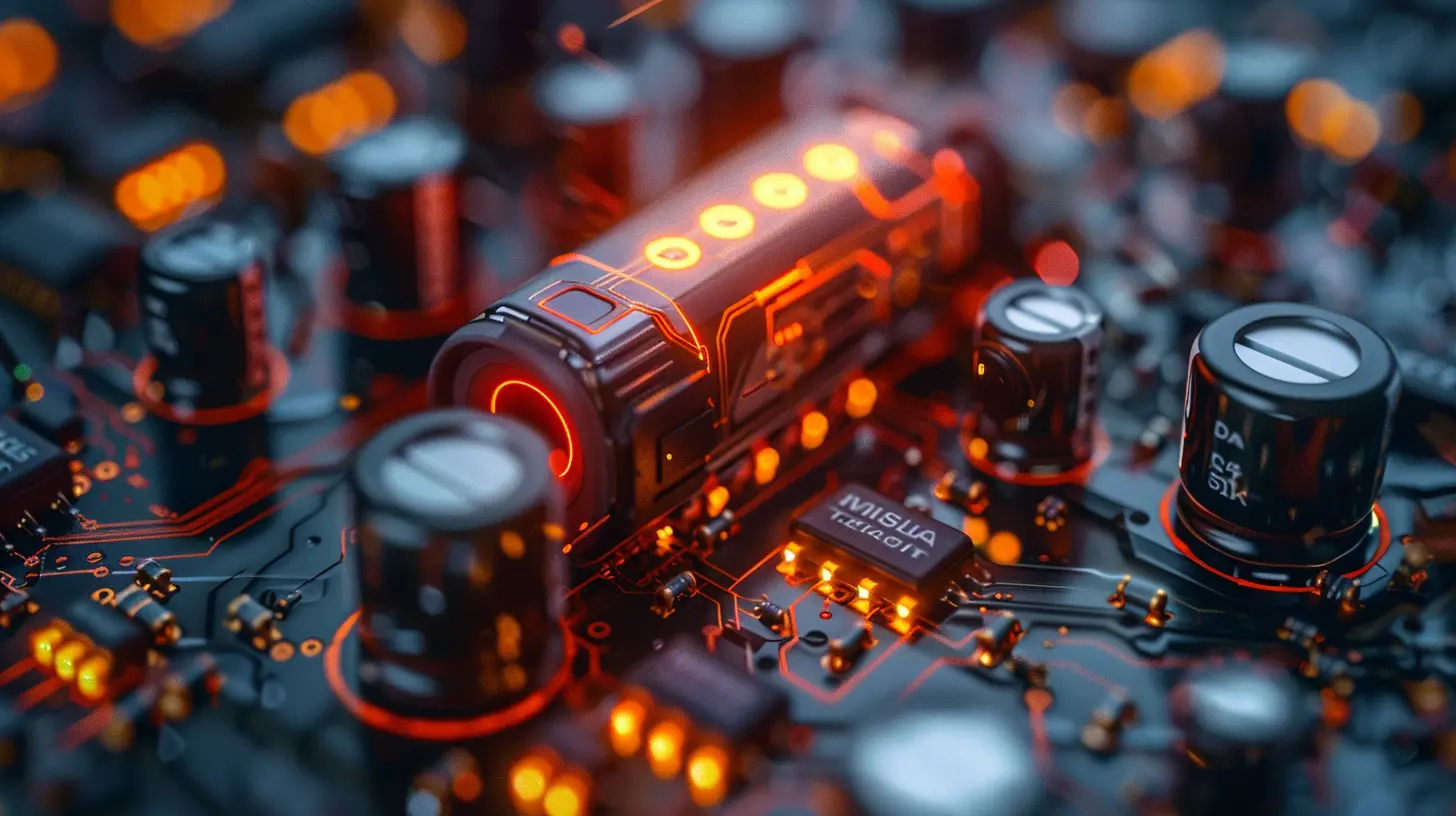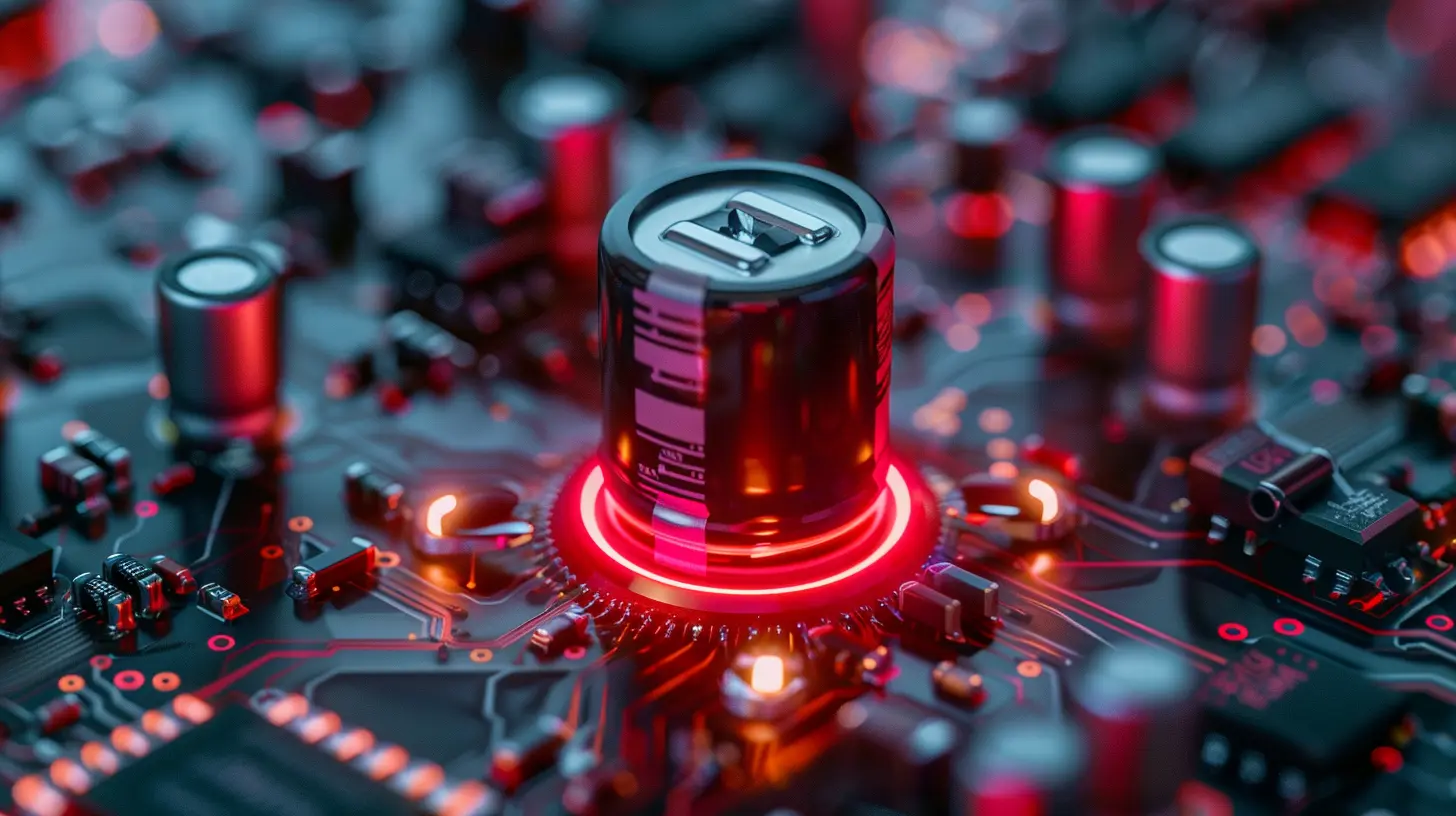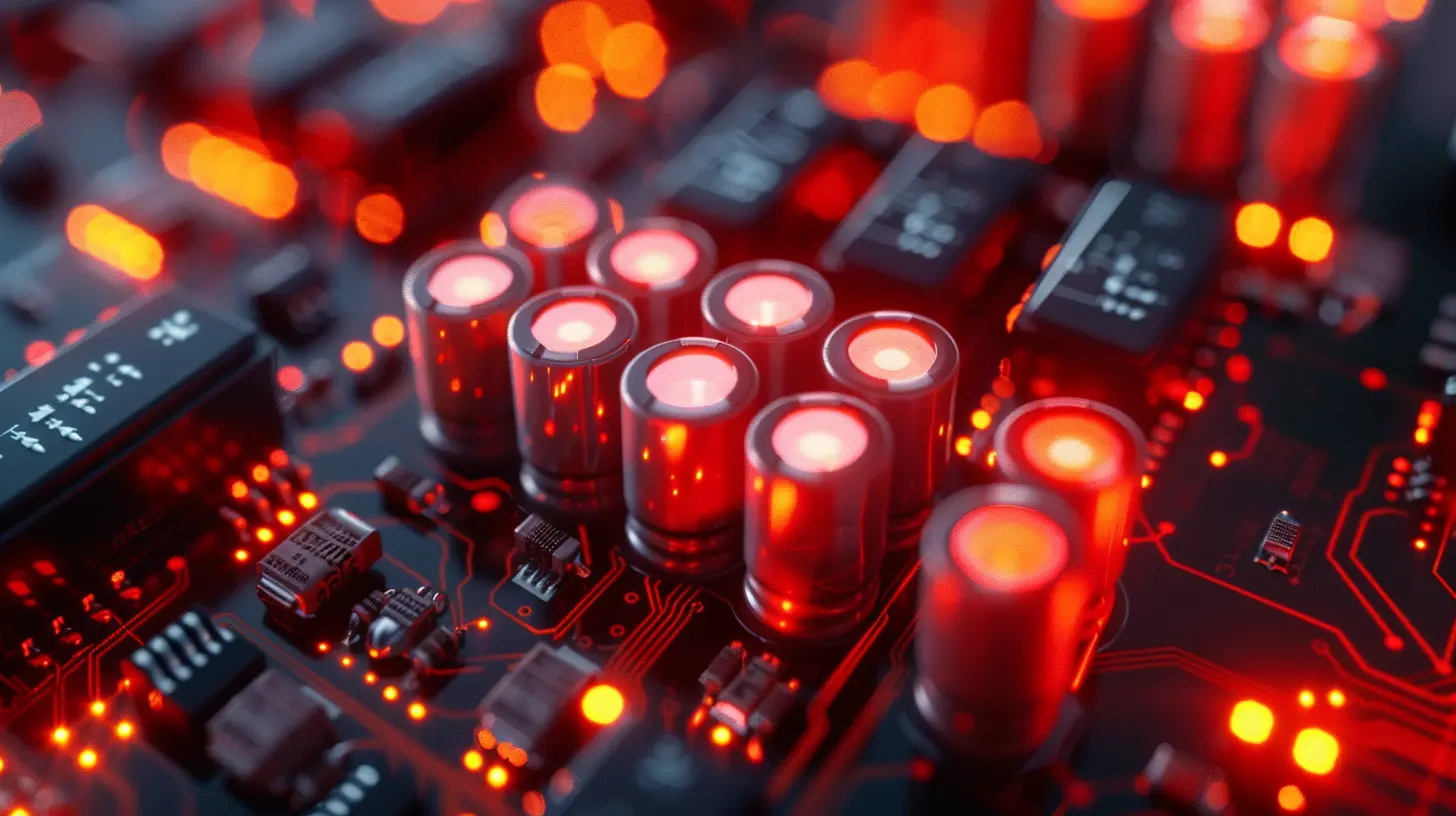Exploring the Role of AI in Advancing Battery Lifespan
3 September 2025
Batteries power our modern world—from smartphones that rarely leave our hands to electric vehicles (EVs) racing toward a greener future. But let’s be honest: battery problems are the Achilles’ heel of almost every tech gadget. Ever noticed how your phone doesn’t make it through the day anymore, even though it once did effortlessly? Or how EVs still can't quite match the range of gasoline-powered cars without some serious planning?
Here’s where the plot thickens. Artificial Intelligence, or AI, is stepping in like a genius mechanic who not only fixes the engine but redesigns it to last twice as long. AI is transforming how we develop, manage, and optimize batteries—with the ultimate goal of making them more durable, efficient, and, yes, smarter.
Let’s peel back the layers and look at how AI is quietly revolutionizing battery longevity. Spoiler: it’s tech magic with a scientific soul.
The Battery Bottleneck: A Real Problem
Let’s face it—our devices are only as good as the batteries that power them. Lithium-ion batteries, the workhorse of modern electronics and EVs, have come a long way. But they still struggle with efficiency losses over time, overheating issues, and degradation after repeated charging cycles.And it's not just an inconvenience. Worn-out batteries mean more e-waste, higher costs, and for EVs, range anxiety. So, how do we push past this barrier without reinventing the entire chemistry of batteries from scratch?
That’s the million-dollar question AI is trying to answer.
AI Enters the Lab: Predicting Battery Life Like a Crystal Ball
Imagine if you could look into a crystal ball and see exactly when your battery would fail. That’s essentially what AI can do—minus the smoke and mirrors. Using machine learning algorithms, researchers are training models to predict a battery’s degradation cycle long before it shows any signs of giving out.These AI models work by analyzing huge datasets of charge/discharge cycles, temperature readings, voltage fluctuations, and user behavior patterns. With enough data, AI gets smart—really smart. It starts to detect patterns that even skilled scientists might overlook.
Pretty wild, right? A neural network can now forecast whether your EV battery will hold up after 1,000 charges or start losing steam after just 600.
Smart Charging: Extending Life, One Plug-in at a Time
Ever been told not to charge your phone overnight? That’s because batteries have a sweet spot—somewhere between 20% and 80% charge. Charging beyond that too often can strain the battery. But who wants to manually babysit a battery all the time?This is where AI becomes your battery’s personal guardian angel.
Smart charging systems powered by AI optimize the charging process in real-time. They consider outside temperature, charge level, and even your usage habits to tailor how the battery is refilled. For example, if it learns that you always drive your EV to work by 8 AM, it might slow-charge overnight and deliver a full battery just before you leave—reducing wear and tear in the process.
It’s like having a tiny butler living inside your battery, ensuring it lives its best life.
AI-Crafted Battery Chemistry: A New Era of Material Discovery
What if we told you AI isn’t just managing batteries, but helping create new ones too?Yup, it’s true. AI is now being used to discover new materials and battery chemistries at ludicrous speeds. Traditionally, testing a new battery compound in the lab could take months or even years. But with AI simulations and generative algorithms, researchers can scan thousands of chemical combinations in mere hours.
One standout example? Researchers developed a new electrolyte compound using AI that significantly reduces battery degradation. That’s like finding the holy grail of battery solutions—without going on a decade-long quest.
So while AI won’t be mixing test tubes in a lab coat anytime soon, it’s definitely becoming the brain behind the breakthroughs.
Thermal Management: Keeping Batteries Cool and Healthy
Ever notice how your phone gets unusually hot sometimes? That’s heat energy being released when your battery struggles—often a sign of stress or inefficiency. Too much heat over time? Say hello to early retirement for your battery.AI is now being used to smartly monitor and manage battery temperature. Think of it like a weather forecaster meets a thermostat. It can predict when the battery is likely to overheat and adjust usage patterns to cool it down. And in EVs, AI systems integrate with the vehicle’s cooling system to maintain a perfect operating temperature.
It’s like having a personal trainer who ensures your battery doesn’t overexert itself—and avoids a meltdown in the process.
Real-Time Battery Health Monitoring: The Doctor Is Always In
Forget periodic check-ups. AI brings in real-time health updates for batteries. Wearables, drones, laptops, and EVs can all benefit from machine learning models that constantly assess battery health indicators, like voltage, resistance, and chemical balance.This enables predictive maintenance—alerting users or devices when a battery is at risk long before any physical signs become evident. Just like a smartwatch alerts you to irregular heart rhythms, AI-powered systems can flag a declining battery before it becomes a dead weight.
This level of insight not only extends the battery's life but also keeps users safer. No more unexpected shutdowns or, worse, fiery malfunctions.
AI-Powered Manufacturing: Quality Control on Steroids
Have you ever thought about how batteries are made? It’s a surprisingly intricate process, with little room for error. A tiny defect can cause a battery to degrade faster or, in worst cases, fail catastrophically.Here’s where AI rolls up its metaphorical sleeves again. In modern battery factories, AI is used to monitor every step of the production process. From analyzing electrode coating thickness to spotting anomalies through image recognition, AI ensures only high-quality cells make it past the assembly line.
The result? More reliable batteries with fewer chances of premature failure. It’s as if Tony Stark himself was overseeing your battery being built.
EVs and AI: A Match Made in Tech Heaven
Electric vehicles are probably the biggest benefactor of AI-driven battery tech. Think about it—batteries are the heart and soul of EVs. Without a healthy, long-lasting battery, an EV is just an overpriced metal box.EV manufacturers are now heavily investing in AI to:
- Predict battery range with uncanny precision
- Adjust power output on-the-fly for performance and efficiency
- Perform dynamic route optimization to conserve battery power
- Enable rapid charging while minimizing stress on battery cells
Basically, AI is turning EVs into intuitive machines that adapt on their own. And as self-driving cars become more common, your vehicle might someday manage its own battery health without you batting an eye.
Challenges on the Horizon: Is AI Enough?
Now, let’s not get too swept away. While AI brings immense promise, it isn’t infallible. There are still hurdles to jump:- Data quality: Poor datasets can mislead AI models.
- Scalability: What works in a lab doesn’t always translate to mass production.
- Battery diversity: Each battery type might need its own unique model.
- Cost: Advanced AI systems don’t come cheap.
But the potential? Mind-blowing. As computing power grows and data becomes richer, these issues are gradually being tackled. The real question is not “if,” but “when” AI becomes central to all things battery-related.
The Road Ahead: Smarter Tech, Greener Planet
We’re on the cusp of a new energy age—one where your devices last longer, your EV drives farther, and your gadgets become more sustainable. AI isn’t just an optional upgrade; it’s becoming a core engine driving battery innovation.The deeper AI understands batteries, the longer they’ll live—and that’s a win for everyone. Less waste. Fewer disruptions. Lower costs. And hey, maybe in the not-so-distant future, we’ll have batteries that never really die, just evolve.
So next time your phone battery hits 1%, don’t curse it. Think about the silent revolution going on behind the scenes—where AI is working hard to make sure that 1% becomes 10%, then 20%, maybe even 100%, without ever making you plug in again.
Wouldn't that be something?
all images in this post were generated using AI tools
Category:
Battery TechnologyAuthor:

John Peterson
Discussion
rate this article
1 comments
Viva McGrath
Great insights on AI!
September 6, 2025 at 3:32 AM

John Peterson
Thank you! I'm glad you found it insightful!


